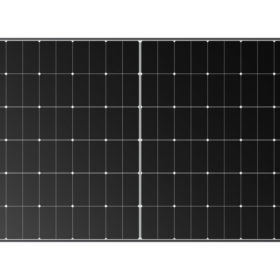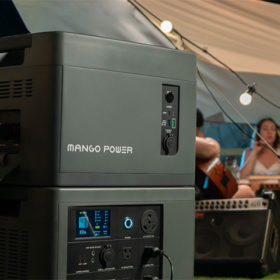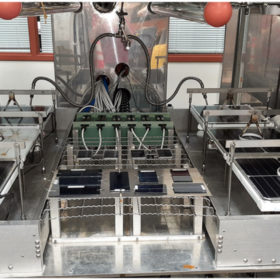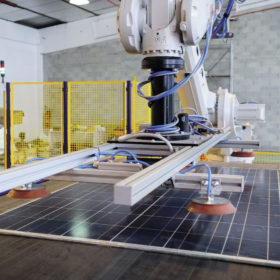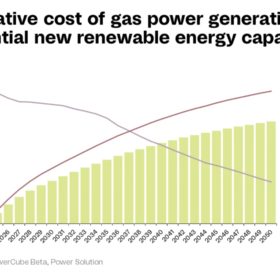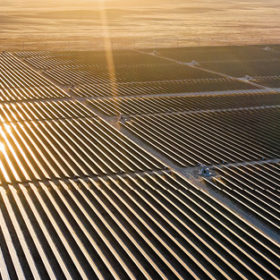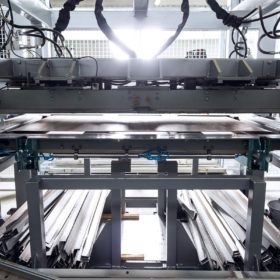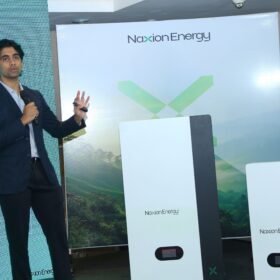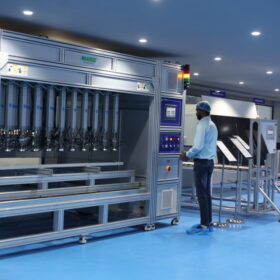Novel redox flow battery paves way for low-cost storage
US researchers have facilitated the decoupling of power from energy design by incorporating a conducting carbon slurry in the negative electrolyte of an all-iron flow battery. In a new study, they describe the design considerations for slurry iron redox flow battery scalability.
Longi launches all new back contact module, promising 22.8% efficiency
Longi has launched a series of modules featuring an all-new hybrid passivated back contact cell technology, with which it claims a maximum module efficiency of 22.8% in mass production. It will initially offer the modules in 54, 60, 66 and 72 cell formats, targeting rooftop and distributed generation applications.
Mango Power unveils home and portable battery system
US-based Mango Power has developed a 3.5 kWh battery system that can be expanded up to 14 kWh. The product features LFP battery cells from CATL and can be charged through AC wall outlets, with solar panels, or via electric-vehicle chargers.
Putting bifacial modules to the test
US scientists recently put different bifacial solar cells and modules through a series of tests at elevated temperature, humidity, voltage and mechanical stress levels. The tests revealed a range of light-induced and potential-induced degradation mechanisms that modules will likely suffer in the field.
Recycling key to solar sustainability
A new study of the environmental impacts of renewable energy finds significant opportunities for solar to reduce its impacts in various categories, including human health, resource depletion, and environmental damage. The study notes in particular that more work is needed to establish a comprehensive reuse and recycling network for end-of-life PV products.
Cooling down solar modules by increasing space between panel rows
A US research team claims to have demonstrated that increasing the spacing of solar panels between rows improves PV system efficiency and economics by allowing airflow to cool down the modules. The method could improve a project’s LCOE by as much as 2.15% in certain climates.
New solar capacity 10 times cheaper than gas, says Rystad
Operating gas-fired power plants would be 10 times more expensive in the long-term than building new solar capacity in Europe, according to research from intelligence company Rystad. Their study uses the levelized cost of energy (LCOE) for gas and coal-fired power generation at different price levels and compares it to the LCOE of solar PV and wind.
Annual added PV capacity will more than quadruple to 650 GW in 2030, says IEA
The International Energy Agency (IEA) has published its “World Energy Outlook 2022” report. It expects the energy crisis triggered by Russia’s invasion of Ukraine to accelerate the global energy transition.
The long read: Cobalt clings on
Cobalt is key for boosting energy density and battery life, but it comes with caveats: expensive, scarce, and linked to unethical mining practices, wild price fluctuations, and a tenuous supply chain. In recent years, battery manufacturers and automakers have intensified efforts to reduce or eliminate cobalt in lithium-ion cathodes. But sometimes, old habits die hard, as pv magazine’s Marija Maisch explains.
New industrial plant concept for end-of-life PV panel recycling
Italian startup Tialpi is developing a process to recycle end-of-life solar panels that promises to recover 100% of a PV module’s weight. The new plant design is currently being tested at the company’s facility in the Italian northern province of Biella.

